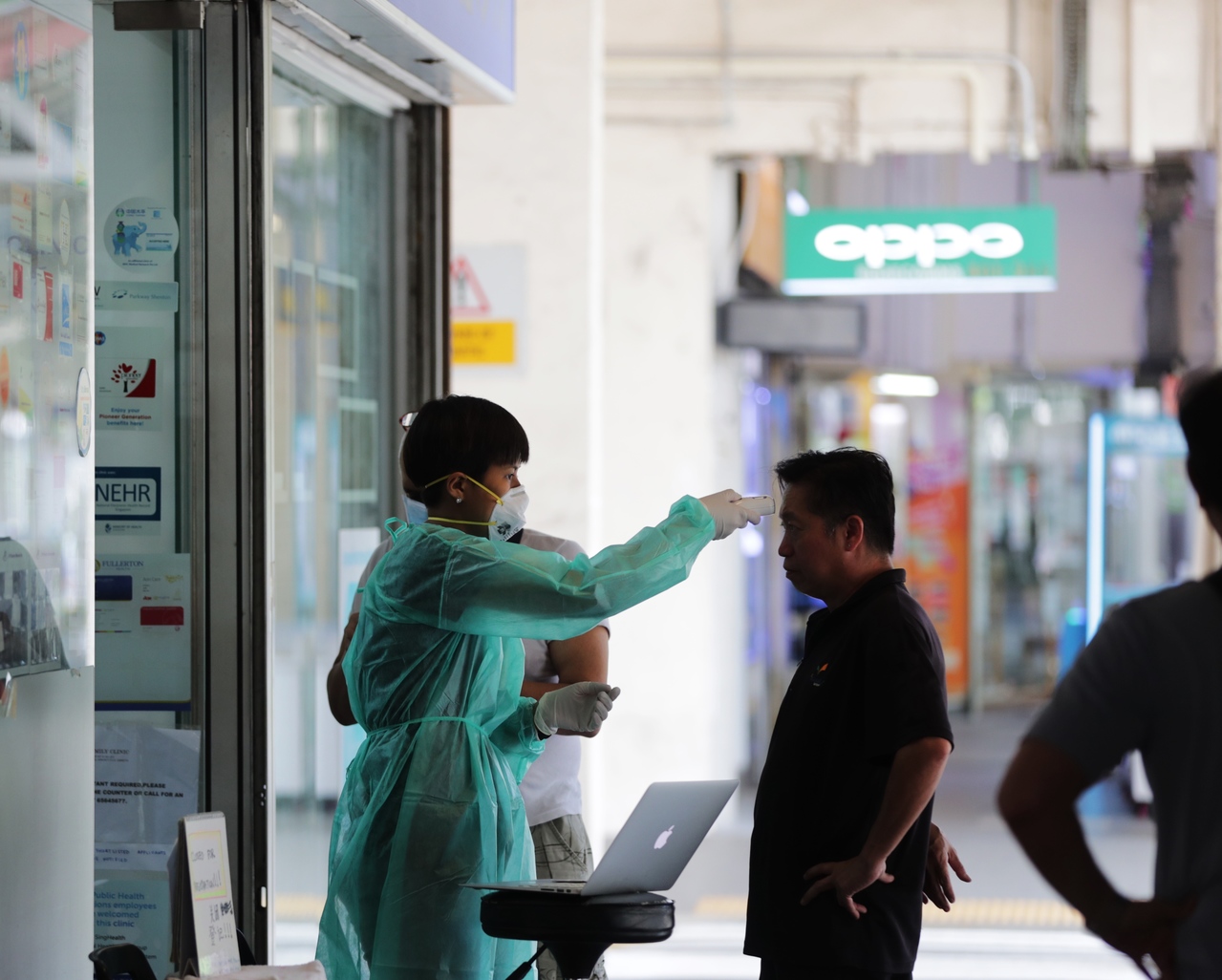Parliament: Not feasible for all GPs to test every patient with flu-like symptoms, says Gan Kim Yong
Sign up now: Get ST's newsletters delivered to your inbox

A patient has his temperature checked prior to entering a clinic in Jurong on Feb 17, 2020.
ST PHOTO: KELVIN CHNG
Follow topic:
SINGAPORE - Temperature screening remains an important measure in the fight against the coronavirus infection as it is effective tool in identifying people who are sick, Health Minister Gan Kim Yong told Parliament on Tuesday (Feb 18).
He was replying to Ms Rahayu Mahzam (Jurong GRC), who had asked how effective it was, "because some of the patients who have been discovered showed very mild symptoms. It also uses a lot of manpower and I'm really not sure if it is the best way".
Agreeing that there are infected people who present other symptoms before fever, Mr Gan said organisations that are doing the screening should also look out for people who do not appear to be well. "If he doesn't look well, please advise him to go back and rest rather than rely solely on temperature taking."
He also appealed to people who are not feeling well to "please see a doctor", and if they remain sick a few days later, to please see the same doctor who would then have the person's history.
Mr Gan fielded questions from about 10 MPs over the coronavirus outbreak, ranging from why general practitioners (GPs) cannot be given kits to test for the virus, to the risk posed by people returning from China.
Mr Yee Chia Hsing (Chua Chu Kang GRC) pointed out that several confirmed cases had seen more than one doctor before being sent to hospital. Would it not be better if GPs were given testing kits so they can be sure, he asked.
Mr Gan replied: "Every day we have about 30,000 people down with flu-like symptoms like runny nose, cough and cold and so on. So it is not possible to test all 30,000 of them."
Furthermore, not all GPs may be familiar with the special techniques required to take the swabs for the test, and "this can be quite a hazardous process" that could expose the GP to unnecessary risk should the person have the virus.
Such tests are better done at hospitals, which have trained personnel and facilities for this.
This is also why the multi-ministry task force has recommended that people with such symptoms be given five days of medical leave - most people with the normal cold, for example, would recover in that time, said Mr Gan.
But those who do not need not panic since there are some illnesses that take longer.
This is why they should return to the same doctor, who can then make a clinical judgment on whether the person may have the coronavirus.
He asked employers to allow staff who have been given five days of MC to stay away from work.
"And if the doctor gives you an MC, stay at home throughout the MC period. Don't go around and don't go and queue up to buy toilet paper and so on," he said, referring to the panic buying that occurred when Singapore raised the risk assessment of the coronavirus outbreak to code orange, the second-highest level.
"Please stay at home and if you need help, always there's an MOH hotline that you can call if you need some help. And if you are very ill and you need the ambulance, you can always call for an ambulance and we will convey you to the hospital."
As to the risk posed by people returning from China, who will be served 14-day stay-home notices - a measure that kicks in on Feb 18 midnight - Mr Gan emphasised that these are not people who have the coronavirus infection, nor are they close contacts of people who have the virus.
They are told to stay home for 14 days as they had been exposed to a community that carries that risk. This is to minimise any risk of spread from them, said Mr Gan.

